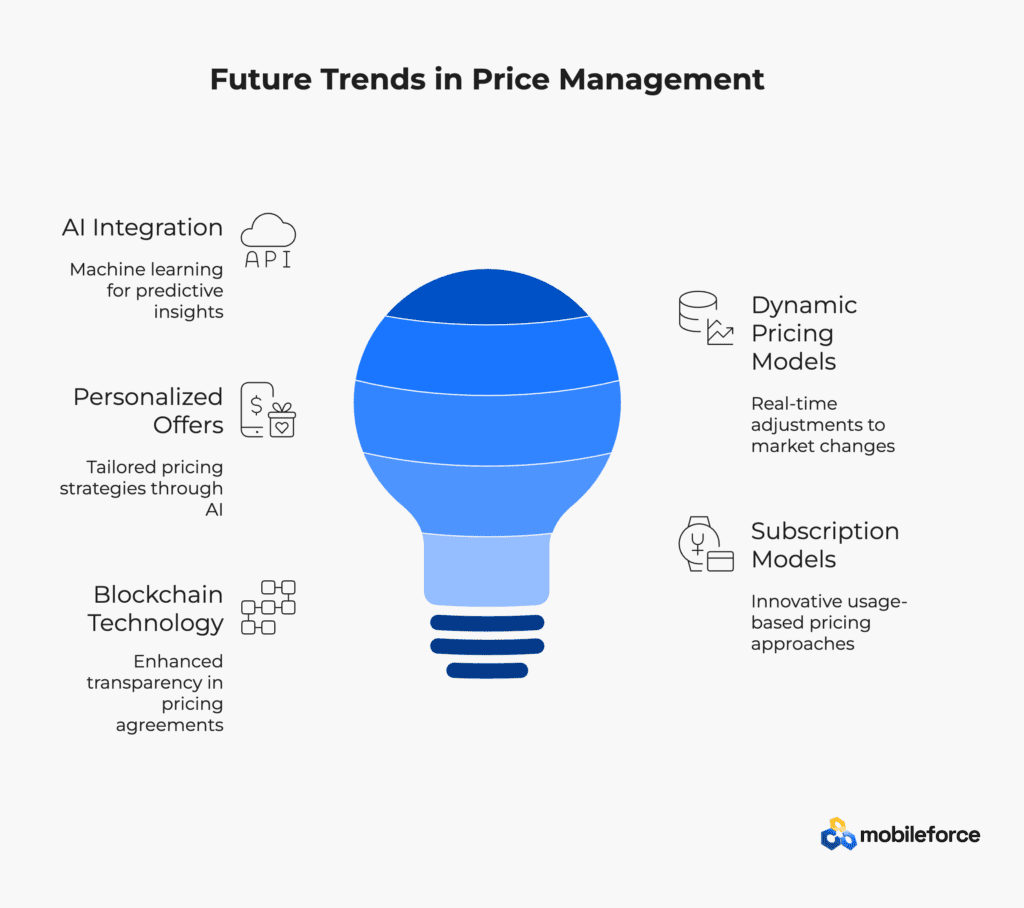- Home
- Glossary Term
- Price Management
What is Price Management?
Price management is a strategic process that involves setting, adjusting, and optimizing the prices of products or services to achieve specific business objectives. It goes beyond simply assigning a price; it requires a deep understanding of various factors such as costs, customer value, demand, and competition. Effective price management ensures that businesses can maximize profitability while remaining competitive in the market.
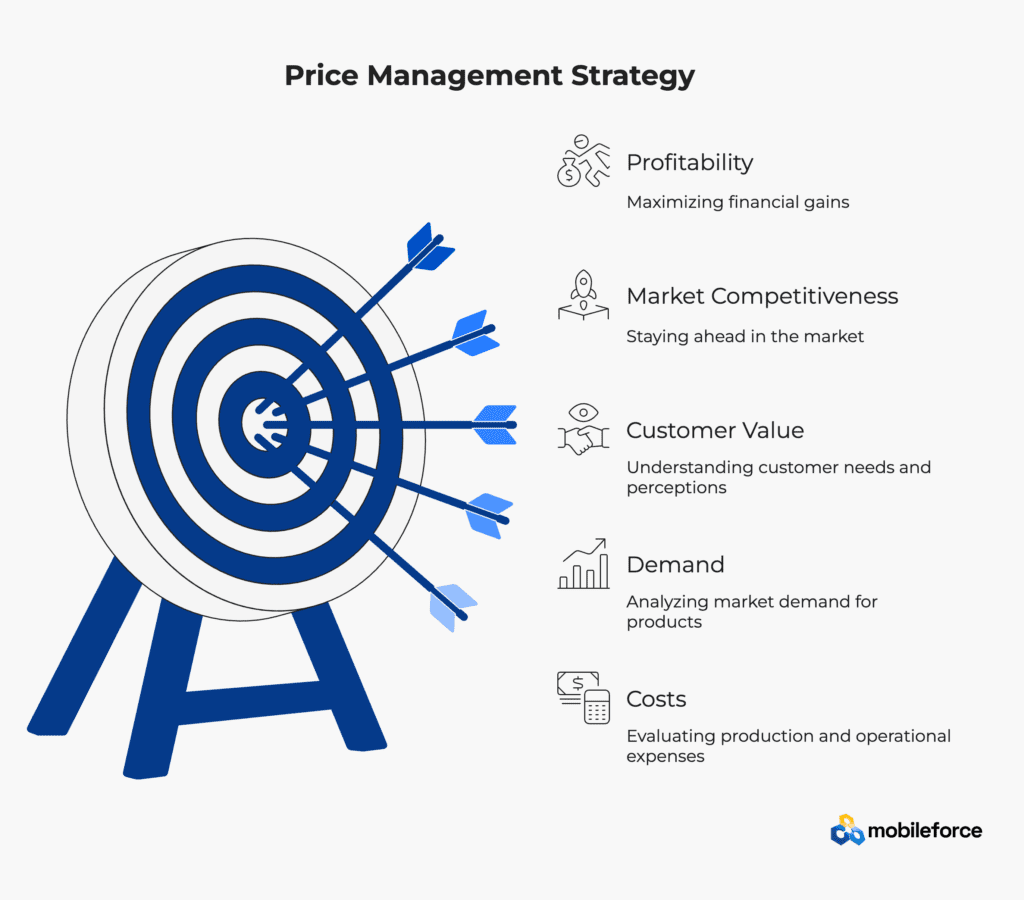
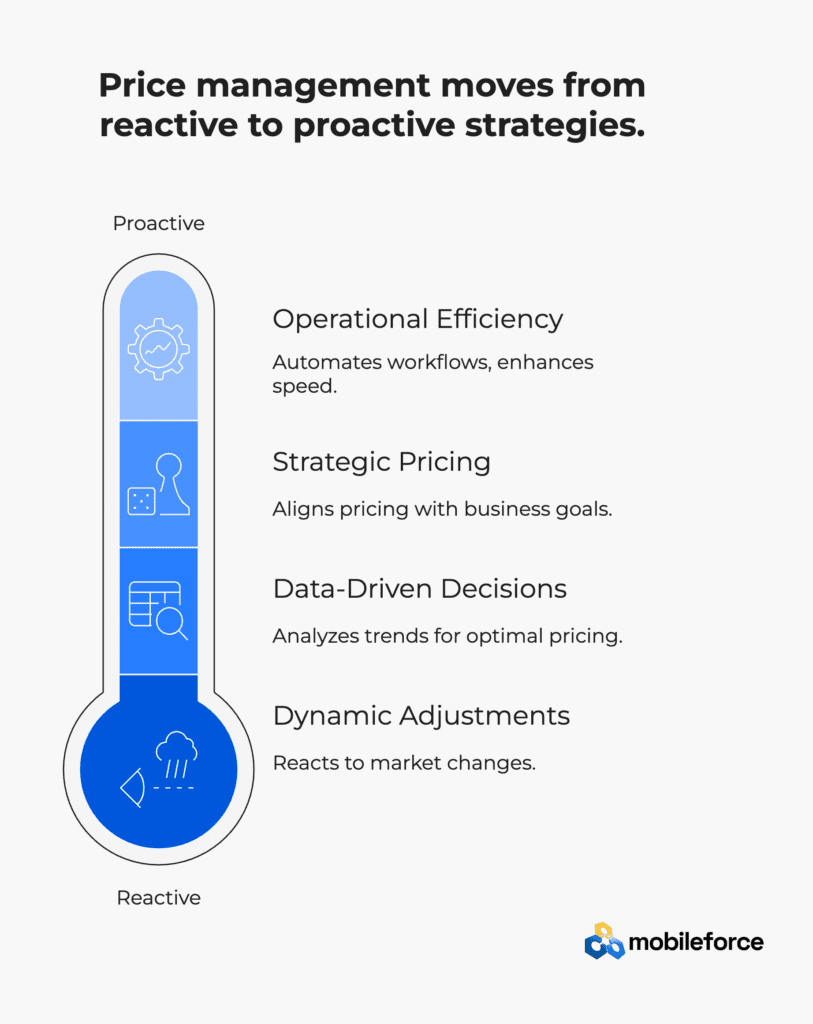
Key Aspects of Price Management
Strategic Pricing: Price management aligns pricing strategies with broader business goals, such as revenue growth, market share expansion, or profit maximization. This involves balancing financial objectives like gross margin and EBITDA with market dynamics.
Dynamic Adjustments: It enables businesses to respond to real-time changes in market conditions, customer behavior, and competitive pressures. This adaptability ensures that pricing remains relevant and effective.
Data-Driven Decisions: Advanced tools and analytics are often used to monitor pricing performance, analyze market trends, and identify the optimal price points for different customer segments or channels.
Operational Efficiency: By automating pricing workflows and integrating with other business systems like CRM or ERP, price management reduces errors and enhances decision-making speed.
Importance of Price Management
Price management is critical for several reasons:
- Maximizing Profitability: It helps businesses set prices that optimize revenue streams while maintaining cost efficiency.
- Staying Competitive: Strategic pricing allows companies to differentiate themselves in crowded markets by offering perceived value for money.
- Enhancing Customer Relationships: By aligning prices with customer expectations and perceived value, businesses can build trust and loyalty.
- Supporting Business Growth: A well-executed price management strategy drives sustainable growth by balancing short-term gains with long-term objectives.
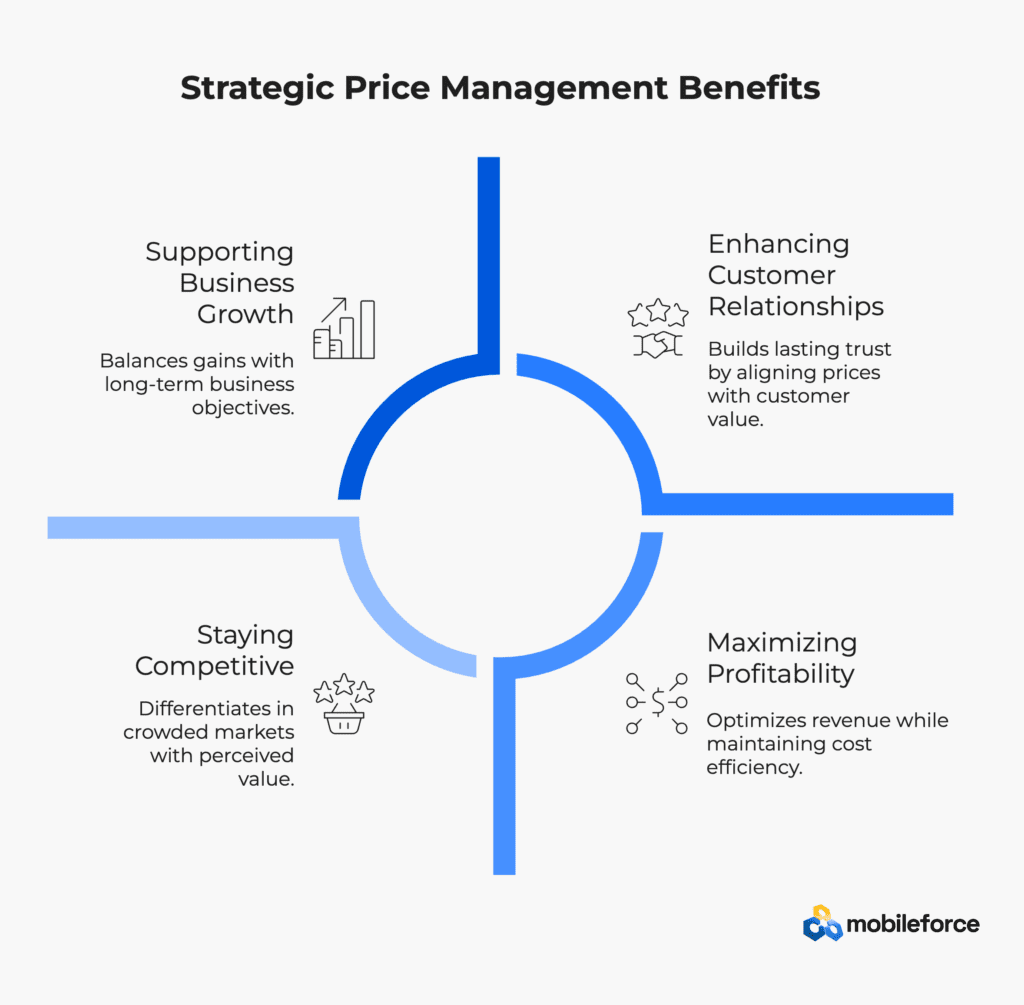
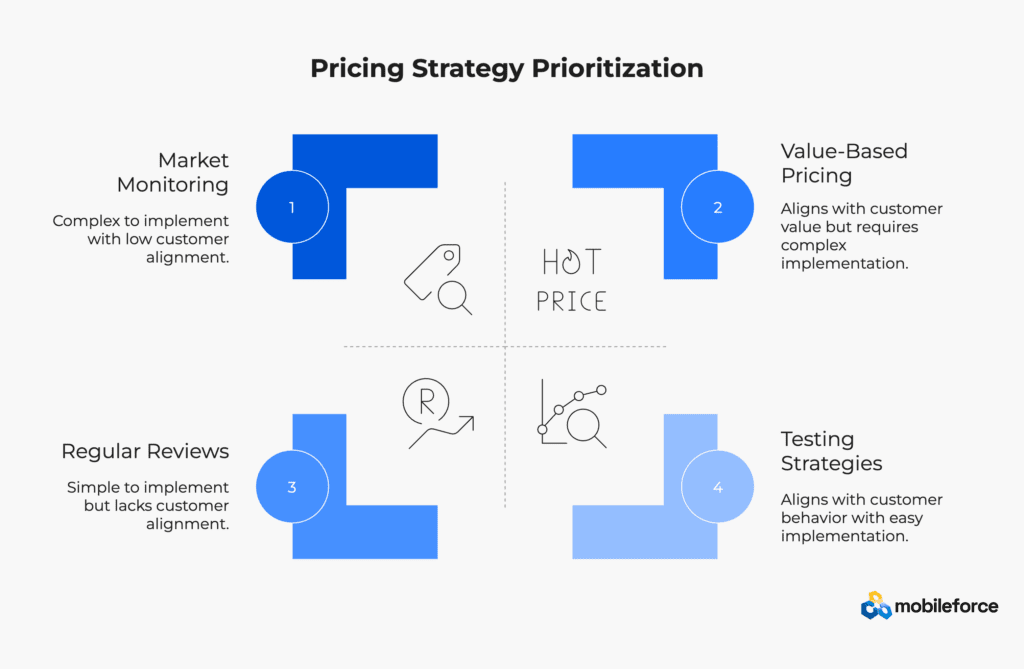
Strategies for Pricing Success
To remain competitive and drive growth, businesses should adopt these best practices:
- Value-Based Pricing: Base prices on the value provided to customers rather than production costs alone. This approach ensures alignment with customer priorities.
- Market Monitoring: Regularly assess competitor pricing and industry trends to make informed adjustments without engaging in destructive price wars.
- Testing Strategies: Experiment with different pricing methods through A/B testing to refine approaches based on customer behavior.
- Regular Reviews: Periodic evaluations ensure that pricing remains relevant to market conditions and business objectives.
- Sales Enablement: Equip sales teams with tools and knowledge to communicate value effectively and negotiate confidently.
The Evolving Role of Price Management and the Impact of CPQ
Price management has undergone a significant transformation, shifting from a basic cost-plus approach to a sophisticated, data-driven strategy. In today’s competitive environment, aligning pricing strategies with business objectives, market conditions, and customer value is critical. This evolution has been supported by modern Configure, Price, Quote (CPQ) systems and RevOps frameworks, which provide automation, actionable insights, and control to optimize pricing throughout the customer journey. When executed effectively, these strategies drive profitability, streamline sales processes, and enhance customer satisfaction.
CPQ systems play a crucial role in advancing price management by addressing key challenges and offering robust solutions:
- Automating Quotes: Predefined pricing rules in CPQ tools ensure accurate quotes are generated quickly, reducing manual errors and speeding up the sales process.
- Managing Complex Pricing Scenarios: CPQ systems handle intricate configurations such as tiered pricing, bundled offers, volume discounts, and subscription-based models. These capabilities ensure consistency and efficiency in executing complex pricing structures.
- Ensuring Compliance: Built-in controls within CPQ platforms enforce adherence to pricing policies, minimizing risks associated with unauthorized discounts or deviations from approved guidelines.
- Streamlining Integration: Seamless integration with CRM and ERP systems enables real-time data synchronization. This enhances decision-making by providing visibility into customer behavior, market trends, and financial performance.
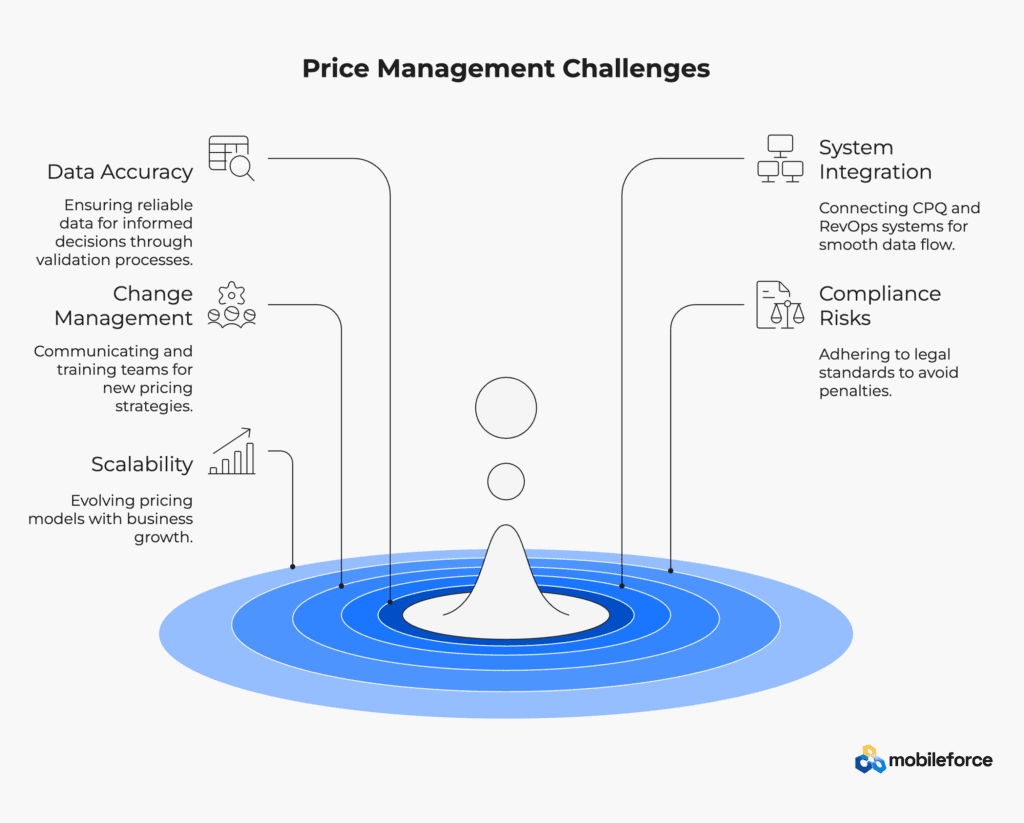
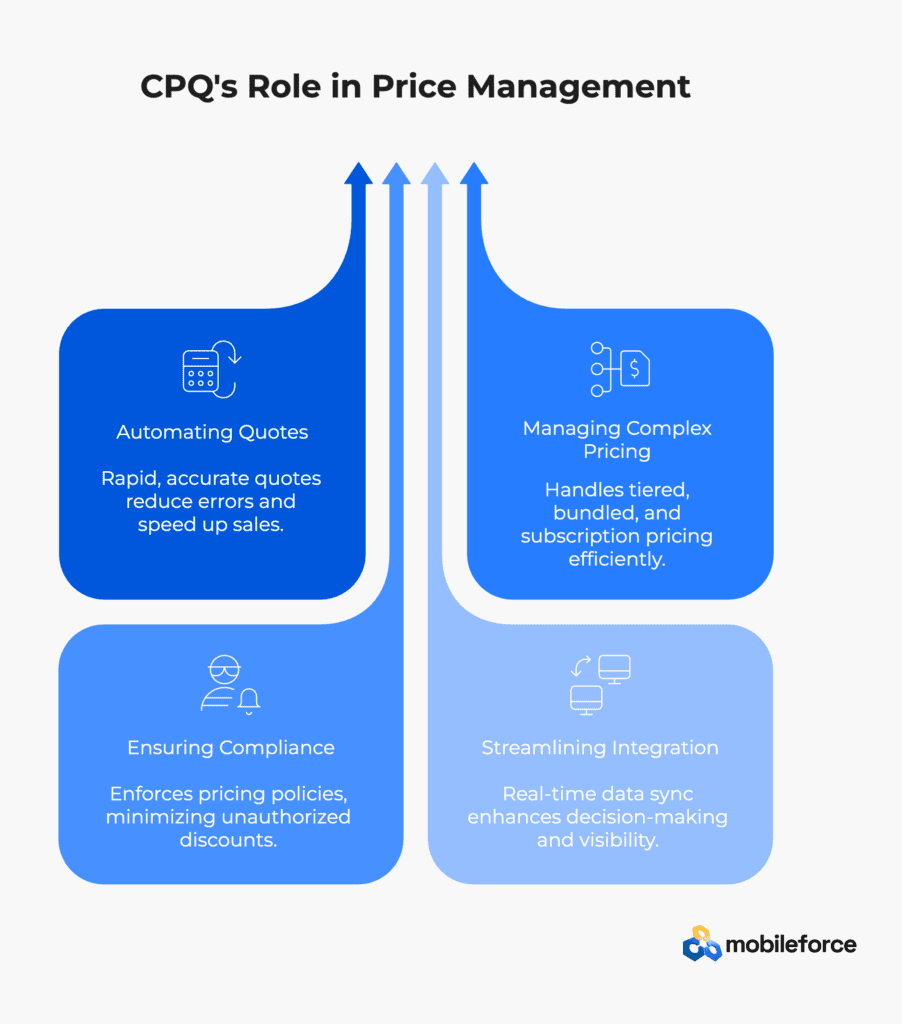
Addressing Price Management Challenges
Effective price management requires overcoming several hurdles:
- Data Accuracy: Reliable data is essential for informed decisions. Regular validation processes are critical.
- System Integration: Connecting CPQ and RevOps systems with other tools ensures smooth data flow.
- Change Management: Introducing new strategies requires clear communication and training for teams.
- Compliance Risks: Pricing must adhere to legal standards to avoid penalties.
- Scalability: Pricing models should evolve alongside business growth.
The Future of Price Management
Emerging trends will shape the future of price management:
- AI Integration: Machine learning will enable advanced optimization through predictive insights.
- Dynamic Pricing Models: Real-time adjustments will become more common as businesses respond instantly to market changes.
- Personalized Offers: AI-driven segmentation will allow for tailored pricing strategies.
- Subscription Models: The rise of usage-based pricing will require innovative approaches.
- Blockchain Technology: Smart contracts may redefine transparency in pricing agreements.
By adopting these principles and leveraging CPQ and RevOps tools effectively, businesses can build a robust framework for price management that drives sustained growth in an ever-changing market.
